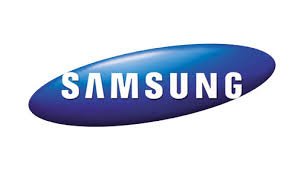
Samsung Electronics Co Ltd of South Korea reported its biggest April-June profit since 2018, boosted by robust sales of memory chips to server customers even as demand from inflation-hit smartphone makers cools.
Following the release of preliminary results, shares of the world's top memory-chip and smartphone manufacturer rose 3.2 per cent, compared to a 1.8 per cent advance in the overall market.
Other chipmakers' shares jumped as well, including rival SK Hynix and the world's largest foundry TSMC, as analysts suggested restricted supply of some chips could help offset weaker demand, which is driving down memory chip prices.
Samsung reported an operating profit of 14 trillion won ($10.7 billion), up 11% from 12.57 trillion won a year earlier, but slightly short of Refinitiv's 14.45 trillion won SmartEstimate.
Revenue increased by 21 per cent to 77 trillion won in the second quarter, matching market expectations.
Samsung's excellent quarter comes at a time when rival chipmakers have warned of a possible chip glut at clients who stockpiled up during the epidemic to satisfy increased demand from individuals working from home.
Chipmakers such as Micron and Advanced Micro Devices have recently signalled dwindling demand as high inflation squeezes consumer spending.
"Memory chipmakers are expected to build inventory this year, keeping supply conservative, and hike shipments when prices rebound and demand recovers next year", said Park Sung-soon, an analyst at Cape Investment & Securities.
Prices of specific DRAM chips, used in devices and servers, fell about 12% last month from a year ago, according to data provider TrendForce. Prices of NAND Flash chips, used for data storage, are also projected to fall as much as 5% in the July-September period from the previous quarter.
Rising prices, fears of a market slump, the crisis in Ukraine, and China's COVID-19 lockdowns have slowed smartphone sales, leaving server chip demand as the lone bright spot, according to analysts.
Samsung's revenues have been protected since huge U.S. tech businesses like Amazon, Microsoft, Alphabet's Google, and Meta, which utilise a lot of data centre services, have continued to buy semiconductors to meet cloud demand, they noted.
Foxconn, a Taiwanese contract electronics supplier and Apple iPhone maker, boosted its full-year projection and expressed optimism about the third quarter on Monday, arguing for robust server demand.
A strong dollar, which reached a 20-year high in the second quarter, may have also boosted Samsung's chip profitability.
Samsung's semiconductor sales are primarily in dollars, while its profit is reported in Korean won, therefore a strong dollar equates to increased chip earnings.
According to Counterpoint Research, estimated smartphone shipments by Samsung's mobile unit in the second quarter were about 62-64 million, around 5 percent -8 percent lower than a March forecast, as inflation impacted smartphone demand.
In the first quarter, Samsung shipped 74 million devices.
"This trend is the same for major global smartphone makers, although there is variance to some degree ... In particular, the hit to the demand for low- and mid-end smartphones seems more severe," said Jene Park, Senior analyst at Counterpoint.
(Source:wwww.usnews.com)
Following the release of preliminary results, shares of the world's top memory-chip and smartphone manufacturer rose 3.2 per cent, compared to a 1.8 per cent advance in the overall market.
Other chipmakers' shares jumped as well, including rival SK Hynix and the world's largest foundry TSMC, as analysts suggested restricted supply of some chips could help offset weaker demand, which is driving down memory chip prices.
Samsung reported an operating profit of 14 trillion won ($10.7 billion), up 11% from 12.57 trillion won a year earlier, but slightly short of Refinitiv's 14.45 trillion won SmartEstimate.
Revenue increased by 21 per cent to 77 trillion won in the second quarter, matching market expectations.
Samsung's excellent quarter comes at a time when rival chipmakers have warned of a possible chip glut at clients who stockpiled up during the epidemic to satisfy increased demand from individuals working from home.
Chipmakers such as Micron and Advanced Micro Devices have recently signalled dwindling demand as high inflation squeezes consumer spending.
"Memory chipmakers are expected to build inventory this year, keeping supply conservative, and hike shipments when prices rebound and demand recovers next year", said Park Sung-soon, an analyst at Cape Investment & Securities.
Prices of specific DRAM chips, used in devices and servers, fell about 12% last month from a year ago, according to data provider TrendForce. Prices of NAND Flash chips, used for data storage, are also projected to fall as much as 5% in the July-September period from the previous quarter.
Rising prices, fears of a market slump, the crisis in Ukraine, and China's COVID-19 lockdowns have slowed smartphone sales, leaving server chip demand as the lone bright spot, according to analysts.
Samsung's revenues have been protected since huge U.S. tech businesses like Amazon, Microsoft, Alphabet's Google, and Meta, which utilise a lot of data centre services, have continued to buy semiconductors to meet cloud demand, they noted.
Foxconn, a Taiwanese contract electronics supplier and Apple iPhone maker, boosted its full-year projection and expressed optimism about the third quarter on Monday, arguing for robust server demand.
A strong dollar, which reached a 20-year high in the second quarter, may have also boosted Samsung's chip profitability.
Samsung's semiconductor sales are primarily in dollars, while its profit is reported in Korean won, therefore a strong dollar equates to increased chip earnings.
According to Counterpoint Research, estimated smartphone shipments by Samsung's mobile unit in the second quarter were about 62-64 million, around 5 percent -8 percent lower than a March forecast, as inflation impacted smartphone demand.
In the first quarter, Samsung shipped 74 million devices.
"This trend is the same for major global smartphone makers, although there is variance to some degree ... In particular, the hit to the demand for low- and mid-end smartphones seems more severe," said Jene Park, Senior analyst at Counterpoint.
(Source:wwww.usnews.com)














